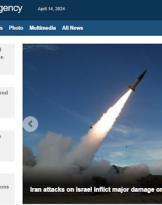The long Indian electoral round begins with the 12 in May. A marathon that many consider to be the most significant democratic exercise in human history.
The elections will go through nine stages, 7, 9, 10, 12, 17, 24, 30 in April and 7 and 12 in May.
An electoral process that will last 36 days, involving 814 millions of people who will go to the polls from the peaks of the Himalayas to the lost Andaman and Nicobar islands, through an electronic vote that will also allow to abstain ("none of the above", or "none of these").
A vote that is monopolized by the challenge between two leaders, Rahul Gandhi (43 years) for the Congress party in power in India for ten years and Narendra Modi (63 years), leader of the emerging Hindu opposition party, the nationalist Bharatya janata party (Bjp). They were suddenly joined by the "anti-corrupt" activist Arvind Kejriwal (45 years) who will challenge Modi in particular in the Varanasi district, the sacred city on the Ganges also known as Benares, both candidates in that constituency.
The outcome of the vote will certainly have repercussions on the story of the riflemen of Marina Massimiliano Latorre and Salvatore Girone, held for over two years hostage in India, accused of killing two fishermen of Kerala and mistaking them for pirates. A certainty that derives above all from the fact that during the whole electoral campaign the nationalist Modi and Arvind Kejriwal referred to them, even with bright tones.
Ways in a rally accused Gandhi of "favoring" and wondered why "they were not in prison" but in the Italian embassy in New Delhi where they reside and work.
The "hawk" Narendra Modi is given by the polls as the big favorite of national legislative elections and his words against our riflemen raise some concern. In any case he does not give up, in fact, in denouncing the alleged "preferential treatment" reserved by the government to the two soldiers placed in custody of the Italian embassy and against whom repeatedly the prosecution has instead asked to assign custody to the judge, thus evoking the prison.
Even the activist of the "anti-corrupt" Arvind Kejriwal exploited the two marines' story claiming the right of India to judge because the incident he said took place in Indian waters. A simplistic approach that demonstrates how Kejriwal has not even read the conclusions of the Indian Supreme Court the 18 January 2013 on where the incident in question would have taken place. Claims which, however, show how the future of the two marched with these new possible protagonists of the Indian political scene.
The results of the elections in India will have the 16 May, a time enough for Italy to start every possible initiative to prevent the risk that the dark clouds that are gathering on the story of the two marò, stratify and consolidate away the solution of the story .
Something incisive, indicating to anyone who wins Indian elections the determined Italian will to demand respect for the rules of international law and give back to the two military functional immunity.
One way to go for this to happen. That of international arbitration which continues to languish, despite the precise pronouncements of respectable political and institutional representatives.
Just to mention a few positions. The president of the Senate foreign commission, Senator Casini who says: "We must internationalize this problem, we no longer trust the Indian justice".
Defense Minister Roberta Pinotti, who invokes the right of functional immunity. Undersecretary for defense Hon. Domenico Rossi who continually calls for the launch of the arbitration, together with the foreign minister Federiga Mogherini. Also the dott. de Mistura tenacious opponent of the arbitration today seems to return his steps.
But then one wonders why the procedure languishes since 18 in March 2013 when, through a Foreign Ministry press release, the then Minister Terzi made it literally official: "Our request to the Indian authorities to initiate consultations pursuant to art. 100 and art. 283 of the Convention on the Law of the Sea (UNCLOS) has so far received no response. This path was indicated by the same sentence of the Indian Supreme Court of 18 January and several times in the past proposed by Italy. Indian denial, we also registered, on the same occasion, our further proposal for consultations between legal experts. This position by India has to our surprise and regret modified the scenario and the assumptions on the basis of which the affidavit was released. Under the changed conditions, the Fusiliers' return to India would have been contrary to our constitutional rules (respect for the natural judge established by law, prohibition of extradition of its own citizens, art. 25, 26 and 111 of the Constitution). Our timely requests for letters rogatory to allow criminal proceedings opened in Italy are still unanswered. For these reasons, the Italian government has come to the determination, after having long been committed to a friendly solution of the matter - in which we still firmly believe - to formalize the 11 March the opening of an international dispute. "
An incomprehensible hysteresis of decision making, however, that leads us to think that the influence of those who were so proud of the fateful 22 March of 2013 decided to bring our Navy riflemen back to Delhi.
Probably not a single person, perhaps a triad that at that time and even today is more concerned with defending economic interests rather than guaranteeing the maximum rights to two servants of the state.
Perhaps the time has come to overcome these obstacles and act as quickly as possible so as not to risk that Massimiliano Latorre and Salvatore Girone continue to renounce their rights as citizens and parents.
Fernando Termentini












